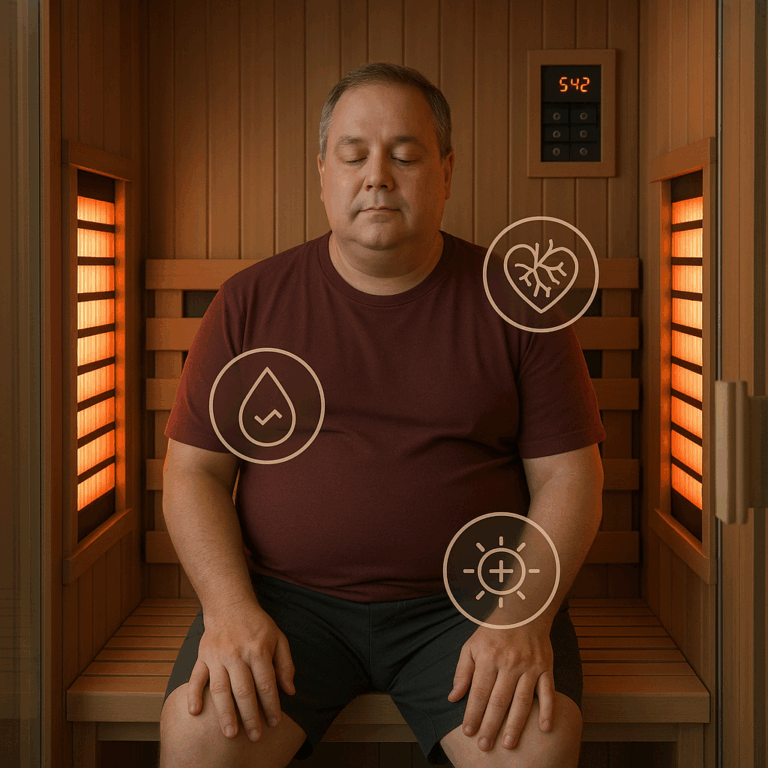
Mental health is as crucial as physical health, and emerging research highlights sauna therapy as a natural, non-invasive method to reduce stress, improve mood, and promote relaxation. Regular sauna use has been linked to lower cortisol levels, enhanced endorphin production, and improved overall well-being. This article explores the scientific mechanisms behind sauna therapy’s impact on mental health and why it should be part of a holistic wellness routine.
How Sauna Therapy Supports Mental Health
1. Stress Reduction and Cortisol Regulation
Sauna exposure lowers cortisol, the primary stress hormone, while promoting relaxation. Studies show that sauna use mimics the effects of meditation and deep relaxation, leading to:
- Decreased sympathetic nervous system activity (fight-or-flight response).
- Increased parasympathetic nervous system activation, promoting calmness.
- Enhanced production of dopamine and serotonin, neurotransmitters that regulate mood.
2. Endorphin Release and Mood Enhancement
Sauna therapy triggers the release of endorphins, the body’s natural painkillers and mood enhancers. The benefits include:
- Improved mood and emotional resilience.
- Reduced symptoms of depression and anxiety.
- Post-sauna euphoria, similar to the effects of exercise-induced endorphin release.
3. Better Sleep Quality and Insomnia Relief
Regular sauna use has been linked to improved sleep due to its effects on body temperature and relaxation. Sauna therapy helps by:
- Increasing melatonin production, supporting deeper sleep.
- Reducing restlessness and nighttime awakenings.
- Lowering cortisol levels, which interfere with sleep cycles.
The Role of Heat Therapy in Anxiety and Depression Management
1. Increased Brain-Derived Neurotrophic Factor (BDNF)
BDNF is a protein essential for brain function and mental well-being. Research indicates that heat exposure stimulates BDNF production, leading to:
- Enhanced cognitive function.
- Neuroprotection against anxiety and depression.
- Support for brain plasticity and resilience.
2. Reduction in Systemic Inflammation
Chronic inflammation has been linked to mental health disorders, including depression. Sauna therapy lowers inflammation markers such as C-reactive protein (CRP) and interleukin-6 (IL-6), reducing neuroinflammation that contributes to mood disorders.
3. Regulation of Autonomic Nervous System (ANS) Function
Sauna sessions help balance the autonomic nervous system, which regulates stress responses. This leads to:
- Improved heart rate variability (HRV), a marker of stress resilience.
- Lower sympathetic nervous system overactivity, reducing chronic anxiety symptoms.
- Enhanced relaxation response, making it easier to manage everyday stress.
Traditional vs. Infrared Saunas for Mental Health Benefits
Traditional Sauna (Finnish Sauna)
- Heat Source: Wood, electric, or gas heater.
- Temperature: 70-100°C (158-212°F).
- Benefits: Deep sweating, cardiovascular activation, and strong relaxation effects.
Infrared Sauna
- Heat Source: Infrared light (near, mid, far-infrared waves).
- Temperature: 45-65°C (113-149°F).
- Benefits: Gentler heat, deeper tissue penetration, and enhanced detoxification.
Best Practices for Using Sauna Therapy for Mental Health
1. Frequency & Duration
- 3-5 sauna sessions per week for optimal stress relief.
- 15-30 minutes per session, depending on individual tolerance.
2. Hydration and Recovery
- Drink plenty of water before and after sauna use.
- Consider electrolyte replenishment to maintain balance.
3. Combining Sauna Therapy with Other Relaxation Techniques
- Meditation or mindfulness practices during or after sauna use.
- Cold therapy contrast sessions (such as cold showers) for added benefits.
- Aromatherapy with essential oils to enhance relaxation.
Who Can Benefit Most from Sauna Therapy for Mental Health?
- Individuals with high stress levels.
- People struggling with anxiety or depression.
- Those suffering from insomnia or poor sleep quality.
- Athletes or professionals facing mental fatigue.
- Anyone looking for natural mood enhancement.
Conclusion
Scientific evidence strongly supports sauna therapy as a powerful tool for improving mental health. By reducing stress, enhancing mood, and promoting relaxation, regular sauna use serves as an effective, natural method for maintaining emotional well-being. Integrating sauna sessions into a routine can provide long-term psychological and physiological benefits, making it an essential practice for a balanced and healthy life.



